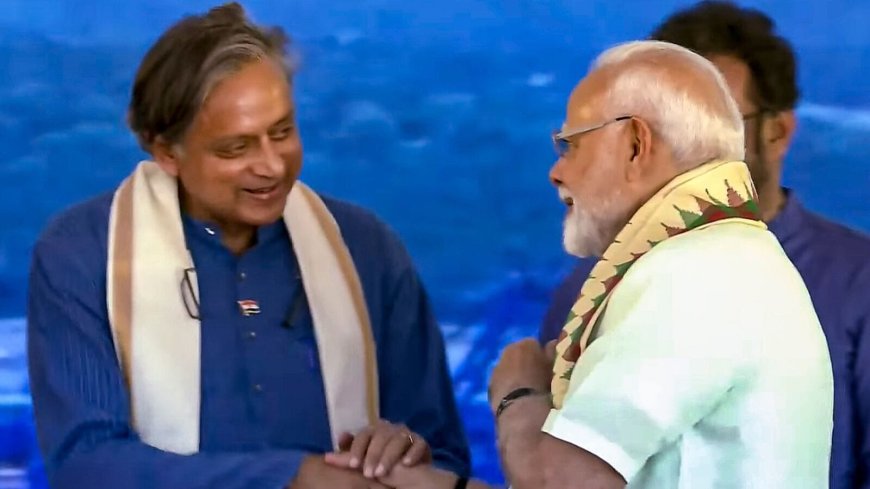Shashi Tharoor breaks silence on Congress's crossed ‘Lakshman Rekha’ remark: 'Never pretended to…'
Shashi Tharoor asserted his comments on the India-Pakistan conflict were personal, urging unity over individual opinions within Congress. He also expressed strong support for government actions against terrorism.

Shashi Tharoor Breaks Silence on Congress's Crossed ‘Lakshman Rekha’ Remark: 'Never Pretended to…'
Breaking News, Daily Updates & Exclusive Stories - dharmyuddh
In a recent statement that has sent ripples through the political landscape, Shashi Tharoor, the prominent Congress leader, has addressed reactions surrounding his comments on the India-Pakistan conflict. Tharoor emphasized that his opinions were personal and did not necessarily reflect the views of the Congress party. This revelation comes after controversy arose regarding remarks deemed as crossing the 'Lakshman Rekha' within political dialogue.
Context of the Controversy
The term 'Lakshman Rekha' traditionally symbolizes a boundary that should not be crossed. In the context of Indian politics, it often refers to maintaining decorum and respect among party lines. Shashi Tharoor, in his earlier remarks, hinted at the need for introspection within the Congress regarding its approach towards national security and terrorism. His statements, however, didn’t sit well with some party members, leading to a heated debate about party unity and individual expression within a collective political framework.
Tharoor's Clarity on Personal Views
In a bid to clarify the misunderstandings, Tharoor asserted, "My comments on the India-Pakistan conflict were personal. I have never pretended to speak for the entire Congress party." This assertion seeks to reiterate the importance of unity over division, especially on topics as vital as national security. He urged party members and supporters to focus less on individual perspectives and more on the collective goal of addressing pressing issues faced by the nation.
Support for Government Actions
Moreover, Tharoor expressed unequivocal support for government actions targeted at combating terrorism. “While we may have diverse opinions within the party, it is crucial for us to present a unified front against terrorism,” he emphasized. This statement could potentially calm internal discord and showcase a determination to prioritize the country’s safety and security above all else.
Analysis: A Balancing Act in Political Discourse
This situation highlights the delicate balance that political leaders must maintain—navigating personal beliefs and collective party goals. Political analysts suggest that leaders like Tharoor play a pivotal role in fostering an environment where diverse opinions can coexist without undermining party solidarity.
Furthermore, Tharoor's comments resonate with citizens who value honesty and clarity in political dialogues. It reflects a growing expectation for leaders to foster constructive discussions, particularly around sensitive topics like national security. His approach could lead to a more open exchange of ideas without crossing the metaphorical 'Lakshman Rekha.'
Conclusion
As the political landscape continues to evolve, Tharoor’s remarks underline an essential aspect of democratic dialogue—the ability to articulate individual views while respecting overarching party principles. Moving forward, it will be interesting to observe how Congress navigates these discussions and whether it can maintain its unity amidst individual opinions. For more updates, visit dharmyuddh.com.







